On October 24th, the Central Propaganda and Mass Mobilization Department, the Party Committee of the Ministry of Education and Training , and the Vietnam National University Ho Chi Minh City jointly organized a national scientific conference on the theme "Modernizing and elevating Vietnamese higher education, creating breakthroughs in the development of high-skilled human resources and talents, leading research and innovation" in Ho Chi Minh City.
Attending the seminar were Mr. Nguyen Trong Nghia, Member of the Political Bureau, Secretary of the Central Committee of the Party, Head of the Central Propaganda and Mass Mobilization Department; Mr. Huynh Thanh Dat, Member of the Central Committee of the Party, Deputy Head of the Central Propaganda and Mass Mobilization Department; Mr. Nguyen Van Phuc, Deputy Minister of Education and Training; representatives of the leadership of the Vietnam National University Ho Chi Minh City, along with managers, scientists and experts in the field of education.
Elevating and decentralizing authority for higher education institutions.
In his presentation at the conference, Associate Professor Dr. Do Phu Tran Tinh, Director of the Institute for Policy Development at the Vietnam National University Ho Chi Minh City, put forward a series of proposals aimed at strengthening decentralization and delegation of power to the Vietnam National University Ho Chi Minh City in the context of implementing Resolution 71-NQ/TW of the Politburo.
According to Mr. Tinh, the current mechanism for decentralization and delegation of authority regarding organizational structure and personnel in financially autonomous public service units still has many shortcomings.
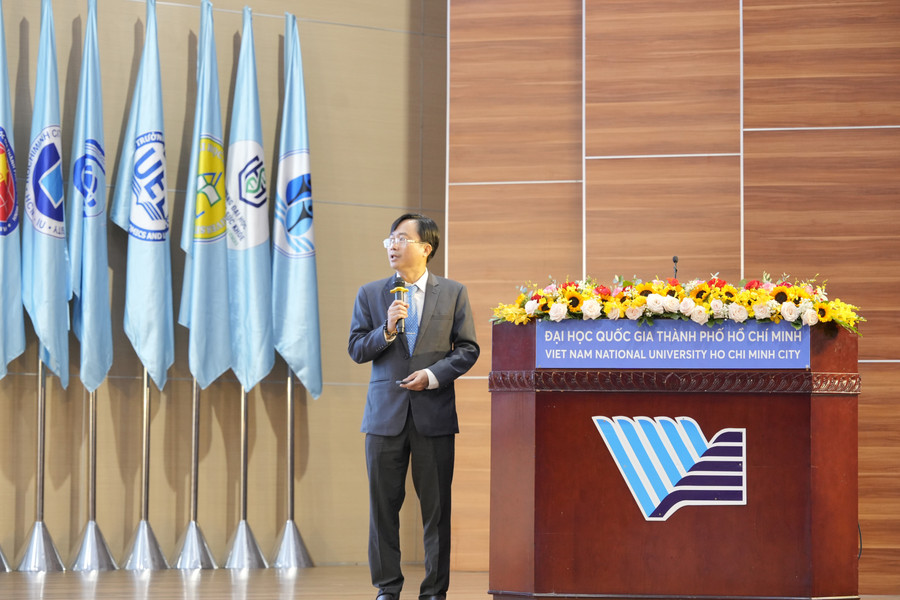
He cited the example that a university with 40,000 students or even just 4,000 students is only allowed a maximum of 3 vice-rectors, which is not in line with practical management.
Therefore, he proposed allowing a pilot program of autonomy in organizational structure and personnel regulations at a number of key universities.
Mr. Tinh proposed granting schools the autonomy to determine the number of vice principals and the structure of departments based on their size and specific operational characteristics, accompanied by a transparent monitoring and evaluation mechanism and clear accountability.
Another notable proposal is to allow a pilot program for the evaluation and recognition of professor and associate professor titles at key, multidisciplinary higher education institutions with strong reputations and scientific potential.
These institutions will be self-assessed and appointed based on compliance with general standards issued by the Prime Minister; the recognition results will have legal validity nationwide.
The Director of the Institute for Policy Development at the Vietnam National University Ho Chi Minh City also emphasized the need for greater flexibility in policies for exceptionally talented scientists, proposing a pilot period of 3 years.
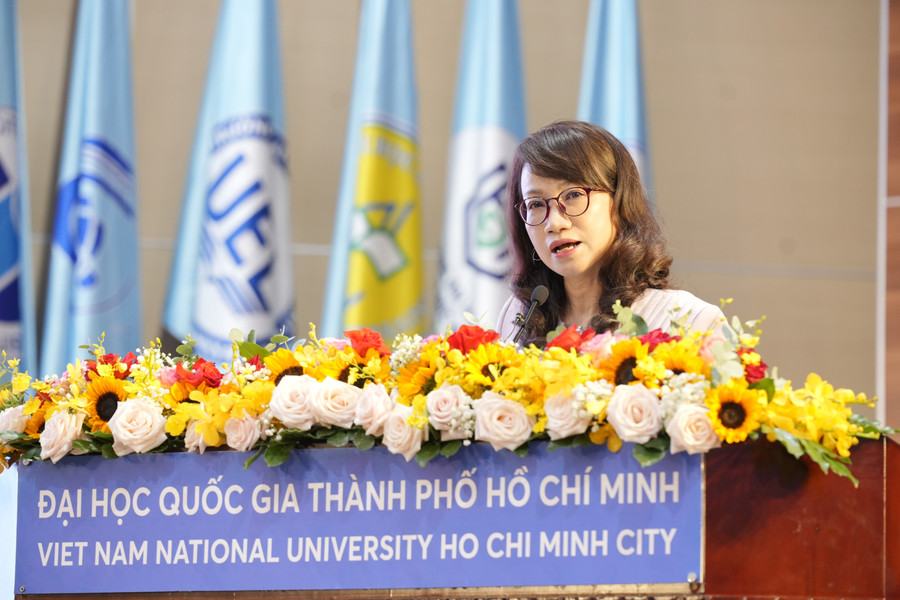
The workshop aimed to disseminate and guide the implementation of Resolution 71-NQ/TW of the Politburo on breakthroughs in education and training development. The central focus was on raising awareness and proposing specific recommendations to concretize breakthroughs in modernizing and elevating Vietnamese higher education.
Professor Nguyen Thi Thanh Mai, Vice Director of the Vietnam National University Ho Chi Minh City, emphasized that Resolution 71-NQ/TW has conveyed a strong message that higher education is the core foundation for developing high-quality human resources and innovation.
She affirmed that the Vietnam National University Ho Chi Minh City is well aware of its pioneering role and has defined its development strategy for the 2021-2030 period in line with the direction of the Party and the State, aiming to be among the top 100 universities in Asia by 2030.
Increase investment in higher education.
Economist Tran Thi Anh Nguyet (World Bank) raised the issue of financing and investment for higher education.
According to Ms. Nguyet, Resolution 71-NQ/TW emphasizes that higher education institutions are the key foundation for training high-quality human resources and talents, as well as promoting science, technology, and innovation.
Currently, Vietnam's higher education and science and technology, research and development, and innovation sectors are facing significant financial and infrastructure challenges. State budget allocations to higher education institutions are not keeping pace with the growth in student numbers, making these institutions increasingly dependent on tuition fees.
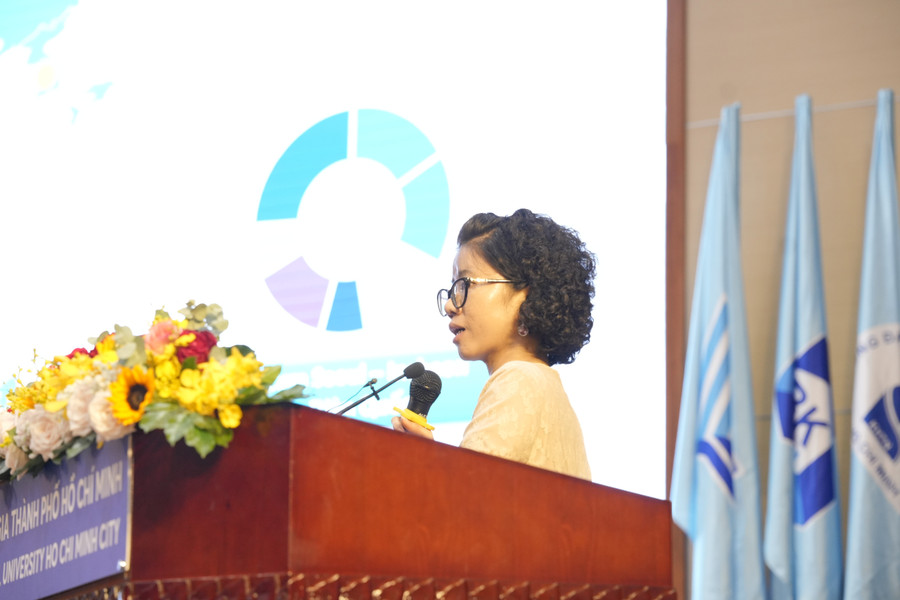
To date, no Vietnamese higher education institution has made it into the world's Top 100 in science or engineering fields. This reflects a shortage of excellent research and internationally recognized innovation capabilities.
To address this, Ms. Nguyet proposed a minimum investment budget of 12-17 billion USD for the period 2026-2030 to implement programs for the development of science, technology, innovation, and higher education.
This funding needs to come from the state budget, the private sector, and development partners, with the goal that by 2030, for every dollar of budget spent on human resource development, the private sector will contribute a corresponding dollar.
Modernizing and upgrading higher education.
Concluding the workshop, Deputy Minister of Education and Training Nguyen Van Phuc stated that leaders, experts, scientists, businesses, and representatives from educational institutions nationwide had discussed and agreed on many important issues to effectively implement Resolution 71-NQ/TW.
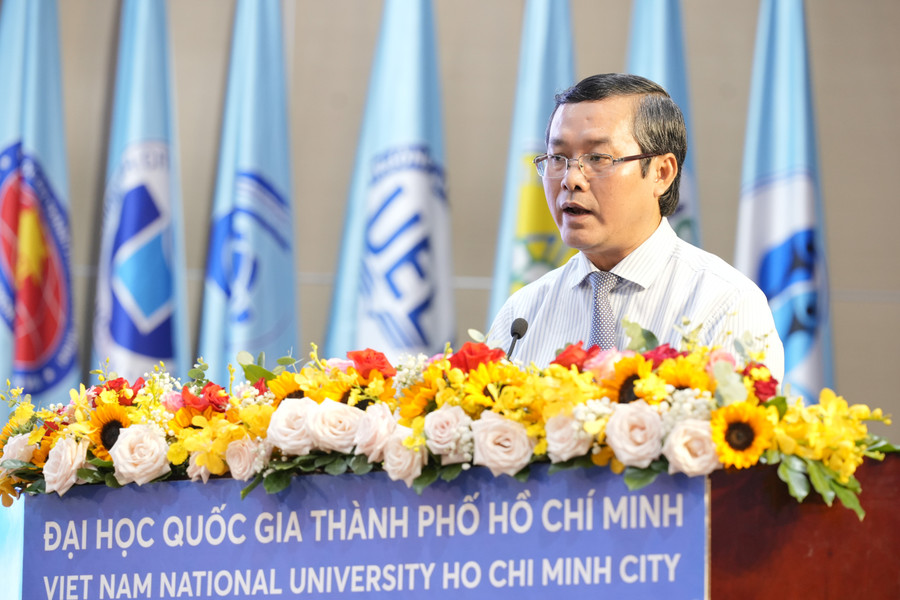
Regarding the content of higher education reform, delegates argued that the issue must begin with institutional, mechanism, and governance reforms, ensuring autonomy. This is the foundation for universities to develop their capabilities, creativity, and improve the quality of training. Expenditure on higher education will reach at least 3% of the total state budget in the future.
Universities need to build an ecosystem for research, innovation, and entrepreneurship within the university, while strengthening linkages between the State, universities, and businesses. In the field of education, delegates particularly emphasized the importance of new technologies, such as artificial intelligence and sustainable development, to meet the demands of the digital age.
Fourth, many opinions affirm the importance of intellectuals, educators, and scientists as the decisive factor in determining the quality and stature of Vietnamese higher education. Therefore, appropriate mechanisms are needed to attract, utilize, and reward talented individuals, creating motivation for them to contribute and develop.
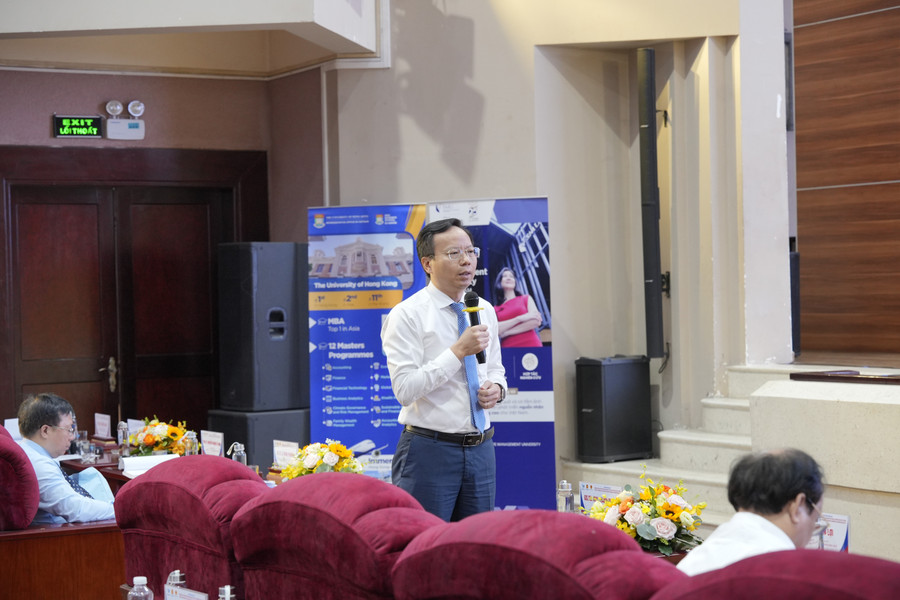
The Deputy Minister emphasized the pioneering role of national higher education institutions, regional universities, and key universities. These will be centers of knowledge and innovation for each region, contributing to the achievement of the country's sustainable development goals.
Source: https://giaoducthoidai.vn/ban-giai-phap-hien-dai-hoa-nang-tam-giao-duc-dai-hoc-post753878.html




![[Image] Close-up of the newly discovered "sacred road" at My Son Sanctuary](/_next/image?url=https%3A%2F%2Fvphoto.vietnam.vn%2Fthumb%2F1200x675%2Fvietnam%2Fresource%2FIMAGE%2F2025%2F12%2F13%2F1765587881240_ndo_br_ms5-jpg.webp&w=3840&q=75)


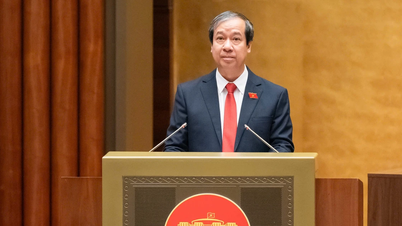
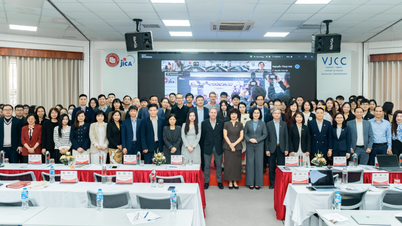


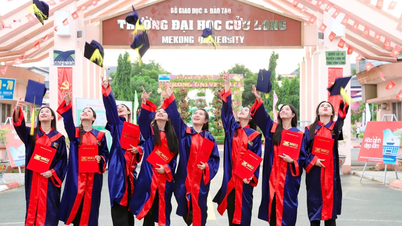

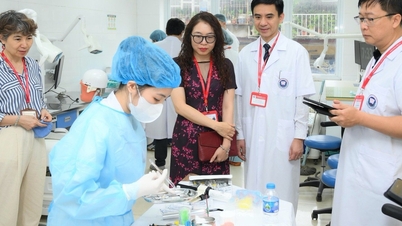

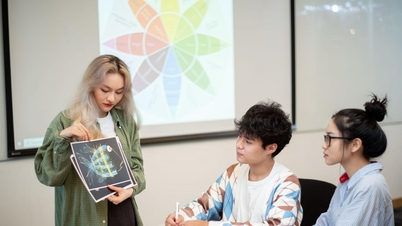

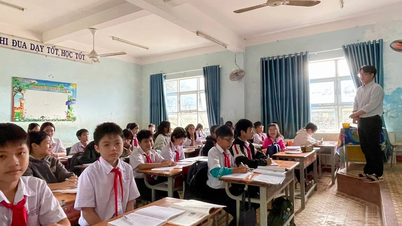


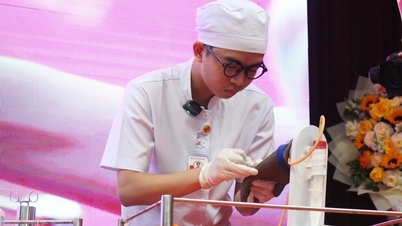
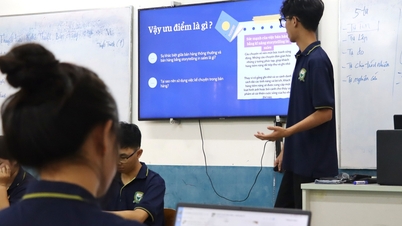



















































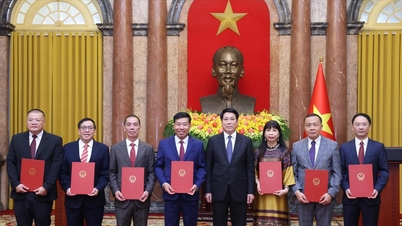

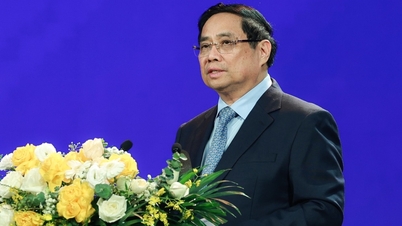











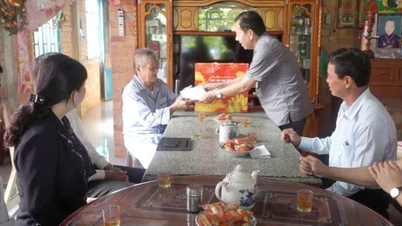

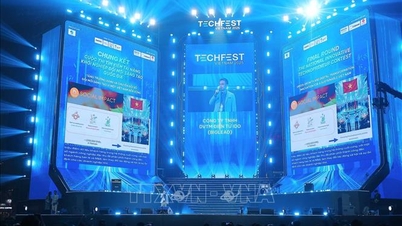

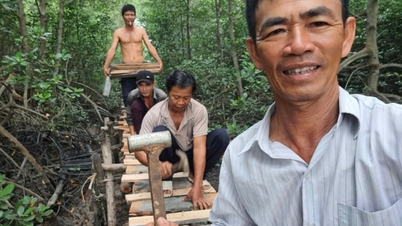

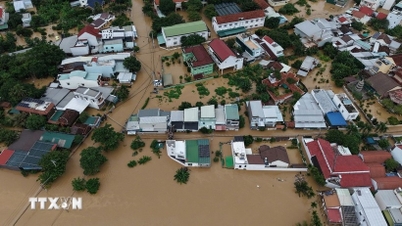
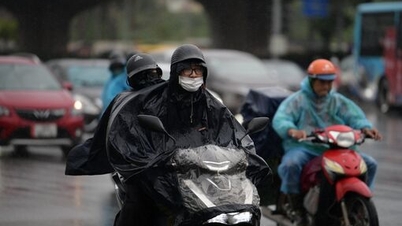












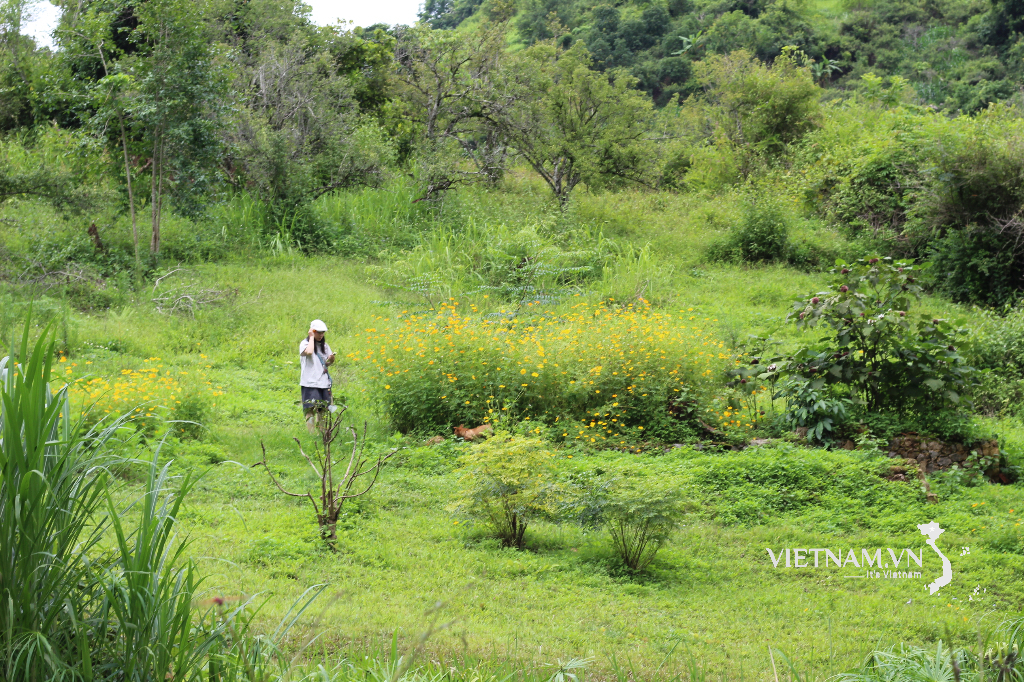


Comment (0)